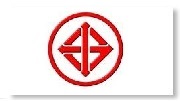Asia
-
-
Thailand TiSi certification
CTS
One stop testing and certification service in all fields
24-hour service line: +86-139 2959 4349
Switchboard: +86-0769-2236 0704
Email: Peter@cts -cn. com
1、 Introduction to TiSi certification
Thailand implements a TiSi certification system combining compulsory certification and voluntary certification. For products conforming to the standard, TiSi mark is allowed to be used. At the same time, according to the resolution of the Thai cabinet, TiSi also implements product registration as a temporary certification means for products that have not yet formulated standards.
The industrial product standards act authorizes the Industrial Standards Institute of Thailand (TiSi) to be responsible for certification in Thailand. TiSi is not only the government authority in charge of compulsory certification in Thailand, but also the standard setting and management organization and certification organization. At the same time, TiSi is also the laboratory accreditation, personnel training and registration organization. It is worth noting that there is no non-governmental compulsory certification body in Thailand.
2、 Scope of certification
There are 60 categories of products requiring compulsory certification by the Thai government, involving 8 fields, including electrical equipment and accessories, medical equipment, building materials, daily consumer goods, vehicles, PVC pipes, LPG gas containers and agricultural products. In addition, the certification of other categories of products belongs to voluntary certification.
Information on Compulsory Certification of lithium batteries:
Since January 26, 2007, the Industrial Standards Bureau of Thailand has formulated a mandatory standard tis 2217-2548 (2005) for single or portable rechargeable batteries composed of alkaline or non acidic electrolytes, which stipulates that their batteries must comply with this standard if they want to enter the Thai market, including form approval, test regulations, safe operation, marking and packaging.
3、 Certification process
Product certification requires that the products comply with the corresponding standards. At the same time, it also requires the manufacturer to have a perfect quality assurance system to maintain the conformity of products with the standards. Therefore, in addition to the type test of products, TiSi's product certification procedure also includes factory inspection before certification and supervision and review after certification.
(1) Product evaluation
TiSi evaluates products according to Thai industrial standard (TIS) and special requirements related to product certification. One of the following three methods can be adopted:
a. Samples are taken and tested by the laboratory
Samples are taken by TiSi qualified officials and submitted to designated laboratories for testing, or laboratories accredited by laboratories accredited by the Thai laboratory accreditation system (tlas) or laboratory accreditation organizations approved by the industrial product standards committee.
b. The samples shall be tested in the factory by the factory personnel and monitored by TiSi qualified officials
When it is considered that the factory's laboratory is fully equipped with specific test equipment and qualified personnel, the sampled products can be inspected by the factory's personnel in the factory and monitored by TiSi qualified officials.
c. Inspection of test report
If the products of the factory have been tested by a laboratory approved by the industrial product standards committee, they can be exempted from repeated testing. However, if the test report is incomplete or different from the corresponding product certification standards and specific requirements, TiSi can take samples to conduct supplementary tests on these items.
(2) Factory inspection before certificate issuance
During the factory inspection before issuing the certificate, the imported products do not need factory inspection, but only review the documents in the quality control process. For foreign factories, factory inspection is required when the review of quality control documents shows that they are insufficient. If the factory has obtained the ISO 9000 quality management system certificate, its quality control system will be exempted from review, but the issuing authority of its certificate shall meet the following requirements:
a. ISO 9000 certification body has been recognized by the National Accreditation Council of Thailand (Onac);
b. The ISO 9000 certification body is approved by the industrial product standards committee.
However, when the quality management system of the factory is incomplete or different from the specific requirements of product certification and the general requirements of product quality control system, TiSi can make supplementary review for these items.
(3) Post certification supervision
The supervision and review after issuing the certificate is to ensure that the certified products continue to meet the corresponding standards and that the factory is still able to maintain the quality of the certified products. The supervision and review system includes:
a. Routine supervision
The supervision and audit can adopt: the supervision of the quality control system and / or the quality supervision of certified products. The frequency of supervision shall be determined according to the consistency of the Licensee's quality control system and the previous supervision.
b. Supervision of quality control system
The supervision of the quality control system mainly adopts sampling test on the factory or market. Samples are taken by TiSi qualified officials and submitted to designated laboratories for testing, or laboratories accredited by laboratories accredited by the Thai laboratory accreditation system (tlas) or laboratory accreditation organizations approved by the industrial product standards committee.
Note: monitor manufacturers, importers and sellers without prior notice to ensure that the production and sales of products comply with Thai tis standards and prevent the abuse and misuse of standard marks and any violation of the industrial product standards law and its amendments.


